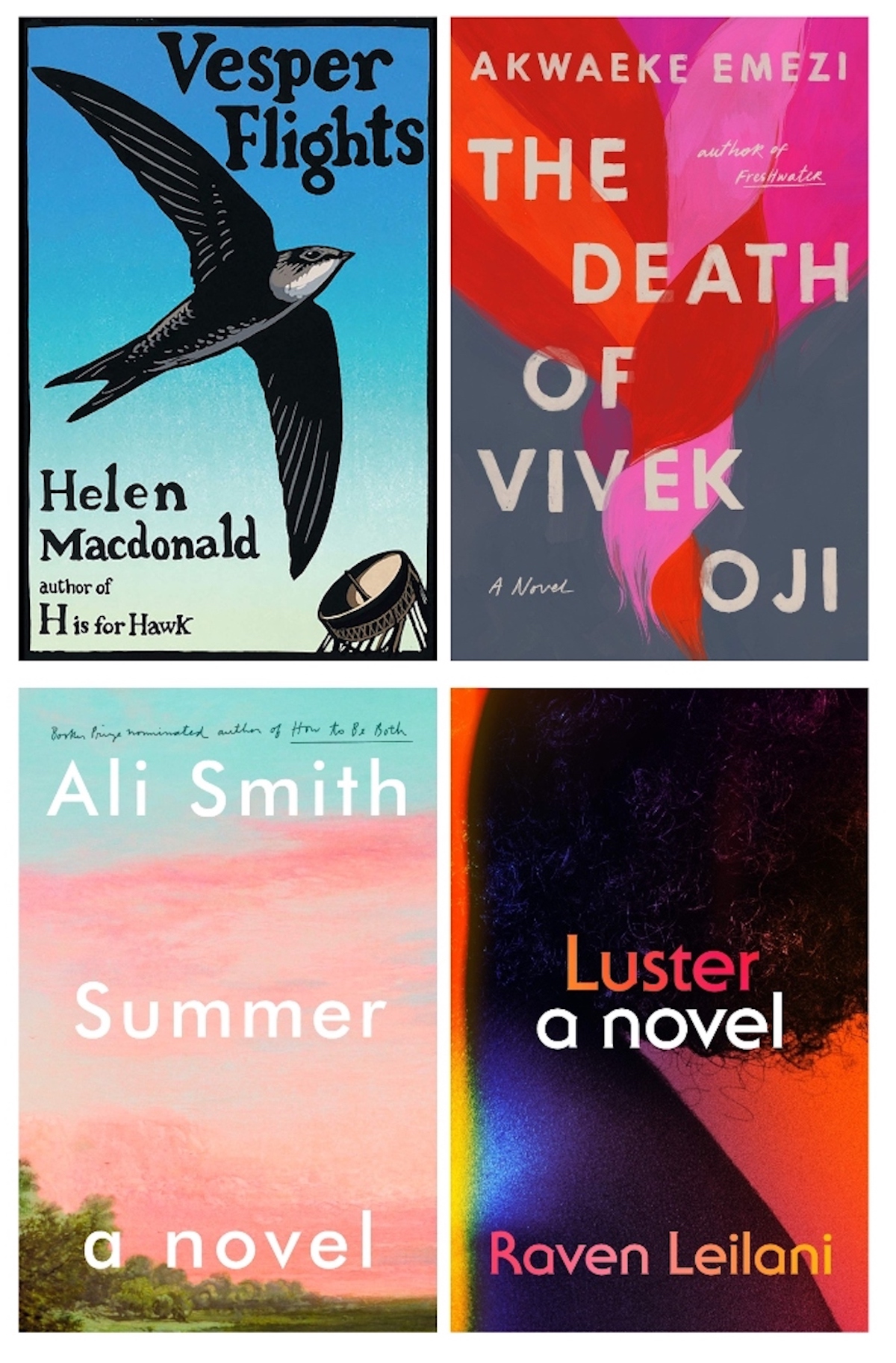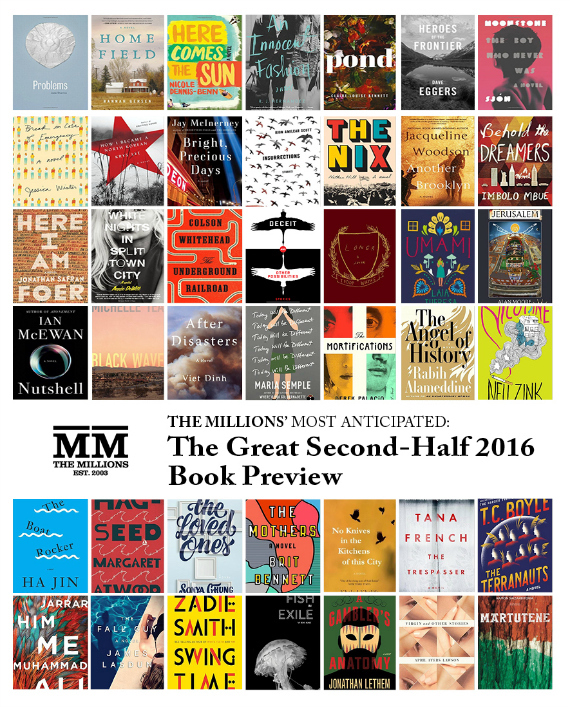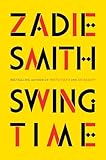We wouldn’t dream of abandoning our vast semi–annual Most Anticipated Book Previews, but we thought a monthly reminder would be helpful (and give us a chance to note titles we missed the first time around). Here’s what we’re looking out for this month. Let us know what you’re looking forward to in the comments!
Want to know about the books you might have missed? Then go read our most recent book preview. Want to help The Millions keep churning out great books coverage? Then sign up to be a member today.
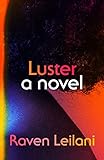 Luster by Raven Leilani: Doesn’t it feel like everyone is raving about this debut? Carmen Maria Machado tweeted, “This novel is ridiculously good…The sentences wrecked me.” Luster centers on 20-something Edie—Kaitlyn Greenidge describes her as “a slacker black queen, a depressive painter, a damn funny woman”—who gets involved in a white couple’s open marriage. In its starred review, Kirkus says it’s “an unstable ballet of race, sex, and power,” and Brit Bennett calls it a “darkly funny, hilariously moving debut from a stunning new voice.” (Edan)
Luster by Raven Leilani: Doesn’t it feel like everyone is raving about this debut? Carmen Maria Machado tweeted, “This novel is ridiculously good…The sentences wrecked me.” Luster centers on 20-something Edie—Kaitlyn Greenidge describes her as “a slacker black queen, a depressive painter, a damn funny woman”—who gets involved in a white couple’s open marriage. In its starred review, Kirkus says it’s “an unstable ballet of race, sex, and power,” and Brit Bennett calls it a “darkly funny, hilariously moving debut from a stunning new voice.” (Edan)
 The Death of Vivek Oji by Akwaeke Emezi: Emezi’s third novel—following Pet, a finalist for the National Book Award for Young People’s Literature—follows a Nigerian family as they grapple with a strange condition afflicting their son Vivek. As a boy, Vivek suffers from unexplained and terrifying blackouts, during which he disassociates from himself, his family, and his surroundings. He becomes close with his cousin Osita, whose confidence and high spirits help guard his own painful secrets. Over time, the two learn exactly what they’ve been hiding from each other, and Vivek’s condition leads them into a crisis. (Thom)
The Death of Vivek Oji by Akwaeke Emezi: Emezi’s third novel—following Pet, a finalist for the National Book Award for Young People’s Literature—follows a Nigerian family as they grapple with a strange condition afflicting their son Vivek. As a boy, Vivek suffers from unexplained and terrifying blackouts, during which he disassociates from himself, his family, and his surroundings. He becomes close with his cousin Osita, whose confidence and high spirits help guard his own painful secrets. Over time, the two learn exactly what they’ve been hiding from each other, and Vivek’s condition leads them into a crisis. (Thom)
 Printed in Utopia by Ed Simon: New from Millions staffer Simon, Printed in Utopia reexamines the renaissance for its moments of radical possibility. From the jacket copy: “Printed in Utopia examines the bloody era of the Renaissance in all of its contradictions and moments of utopian possibility. From the dissenting religious anarchists of the 17th century, to the feminist verse of Amelia Lanyer and Richard Barnfield’s poetics of gay rights. From an analysis of the rhetoric of feces in Martin Luther, to the spiritual liberation of Anna Trapnell.” (Lydia)
Printed in Utopia by Ed Simon: New from Millions staffer Simon, Printed in Utopia reexamines the renaissance for its moments of radical possibility. From the jacket copy: “Printed in Utopia examines the bloody era of the Renaissance in all of its contradictions and moments of utopian possibility. From the dissenting religious anarchists of the 17th century, to the feminist verse of Amelia Lanyer and Richard Barnfield’s poetics of gay rights. From an analysis of the rhetoric of feces in Martin Luther, to the spiritual liberation of Anna Trapnell.” (Lydia)
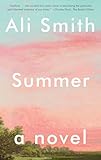 Summer by Ali Smith: Smith’s seasonal quartet unfolded in Autumn four years ago and now concludes in Summer. Set in the lockdown in Brighton, Summer explores many urgent issues we are facing. The theme of detention, for example, reminds us not only of the current pandemic but also of the long-standing precarious lives of immigrants. Rendered in Smith’s graceful and insightful prose, those wide-ranging topics come together beautifully, and we feel more sensible and wiser after reading the book. (Jianan Qian)
Summer by Ali Smith: Smith’s seasonal quartet unfolded in Autumn four years ago and now concludes in Summer. Set in the lockdown in Brighton, Summer explores many urgent issues we are facing. The theme of detention, for example, reminds us not only of the current pandemic but also of the long-standing precarious lives of immigrants. Rendered in Smith’s graceful and insightful prose, those wide-ranging topics come together beautifully, and we feel more sensible and wiser after reading the book. (Jianan Qian)
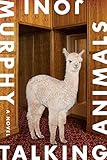 Talking Animals by Joni Murphy: Murphy’s second novel, Talking Animals, is as remarkable as her first, Double Teenage, which moved “with stealth and intelligence against the North American landscape.” Talking Animals envisions an alternate history of Manhattan, this one cultivated by animals, but sans us human animals. Our protagonist, Alfonzo Vellosso Faca, is an alpaca, working a perfunctory job in city hall as he finishes his dissertation, his best friend is a llama, and together “these lowly bureaucrats embark on an unlikely mission to expose the corrupt system that’s destroying the city from within.” The result is devilishly funny and sharply prescient, an Animal Farm for our times. Eugene Lim calls Talking Animals the best novel since Cynthia Ozick’s Puttermesser Papers and implores, “Read it; after all, the sky is falling.” (Anne)
Talking Animals by Joni Murphy: Murphy’s second novel, Talking Animals, is as remarkable as her first, Double Teenage, which moved “with stealth and intelligence against the North American landscape.” Talking Animals envisions an alternate history of Manhattan, this one cultivated by animals, but sans us human animals. Our protagonist, Alfonzo Vellosso Faca, is an alpaca, working a perfunctory job in city hall as he finishes his dissertation, his best friend is a llama, and together “these lowly bureaucrats embark on an unlikely mission to expose the corrupt system that’s destroying the city from within.” The result is devilishly funny and sharply prescient, an Animal Farm for our times. Eugene Lim calls Talking Animals the best novel since Cynthia Ozick’s Puttermesser Papers and implores, “Read it; after all, the sky is falling.” (Anne)
 A Saint from Texas by Edmund White: Yvonne and Yvette are identical twins, born to an oil-rich father in Ranger, Texas. Yvonne reads women’s magazines and wants to be a member of the French aristocracy; Yvette has a “crush on God.” As the years go by, Yvonne climbs the ranks of Parisian society while Yvette dedicates herself to a life of service as a miracle-working, woman-loving nun in Columbia. But for all their differences and the spaces between them, the twins still resemble one another. Publishers Weekly calls A Saint from Texas “equally tender and salacious…a deeply satisfying character study.” (Kaulie)
A Saint from Texas by Edmund White: Yvonne and Yvette are identical twins, born to an oil-rich father in Ranger, Texas. Yvonne reads women’s magazines and wants to be a member of the French aristocracy; Yvette has a “crush on God.” As the years go by, Yvonne climbs the ranks of Parisian society while Yvette dedicates herself to a life of service as a miracle-working, woman-loving nun in Columbia. But for all their differences and the spaces between them, the twins still resemble one another. Publishers Weekly calls A Saint from Texas “equally tender and salacious…a deeply satisfying character study.” (Kaulie)
 Tomboyland by Melissa Faliveno: BDSM. Gun culture. Gender identity. Motherhood (and non-motherhood). Tornadoes. Girlhood. These are just some of the topics that Faliveno explores in her wide-ranging, triumphant debut essay collection. With tenderness and honesty, Faliveno explores boundaries, intersections, and the overall blurriness of life. Melissa Febos says the book is “a gorgeously complex ode to the Midwest that is destined to be passed urgently from hand to hand, an anthem sung by all the misfits in those vast places who have not yet seen themselves written.” And I couldn’t agree more. (Carolyn)
Tomboyland by Melissa Faliveno: BDSM. Gun culture. Gender identity. Motherhood (and non-motherhood). Tornadoes. Girlhood. These are just some of the topics that Faliveno explores in her wide-ranging, triumphant debut essay collection. With tenderness and honesty, Faliveno explores boundaries, intersections, and the overall blurriness of life. Melissa Febos says the book is “a gorgeously complex ode to the Midwest that is destined to be passed urgently from hand to hand, an anthem sung by all the misfits in those vast places who have not yet seen themselves written.” And I couldn’t agree more. (Carolyn)
 Last Call on Decatur Street by Iris Martin Cohen: Set on the eve of Carnival in pre-Katrina New Orleans, Cohen’s second novel follows Rosemary, a young burlesque dancer, who drifts through the French Quarter searching for companionship and contemplating the losses she’s endured. Our own Lydia Kiesling writes: “In a novel about relationships, family, and place, told from the perspective of its real and messy protagonist, Iris Martin Cohen grapples thoughtfully with the rifts between people—both the ones that might be mended, and the ones that might not.” (Carolyn)
Last Call on Decatur Street by Iris Martin Cohen: Set on the eve of Carnival in pre-Katrina New Orleans, Cohen’s second novel follows Rosemary, a young burlesque dancer, who drifts through the French Quarter searching for companionship and contemplating the losses she’s endured. Our own Lydia Kiesling writes: “In a novel about relationships, family, and place, told from the perspective of its real and messy protagonist, Iris Martin Cohen grapples thoughtfully with the rifts between people—both the ones that might be mended, and the ones that might not.” (Carolyn)
 Hysteria by Jessica Gross: In the wake of sex-induced shame, the unnamed protagonist of Gross’s debut novel meets the new bartender at her local bar—who she believes to be Sigmund Freud reincarnated. As their relationship shifts and changes, she begins to explore the contours of her desire. About the novel, Courtney Maum writes: “Nervy, candid, wet with ink-black humor, Hysteria champions female sexual appetites while also exploring the emotional hunger that leads to self sabotage.” (Carolyn)
Hysteria by Jessica Gross: In the wake of sex-induced shame, the unnamed protagonist of Gross’s debut novel meets the new bartender at her local bar—who she believes to be Sigmund Freud reincarnated. As their relationship shifts and changes, she begins to explore the contours of her desire. About the novel, Courtney Maum writes: “Nervy, candid, wet with ink-black humor, Hysteria champions female sexual appetites while also exploring the emotional hunger that leads to self sabotage.” (Carolyn)
 Being Lolita by Alisson Wood: This coming-of-age memoir chronicles the abusive relationship between Wood and an English teacher 10 years her senior; her journey to self-discovery; and how she reclaims the narrative of her own life and begins to write her way into healing. T Kira Madden writes, ” Wood’s debut is a celebration of survival, teaching us that in the end, we are the most reliable narrators of all, the hero of our own stories. Being Lolita is an incisive reckoning, a work of art, a new education.” (Carolyn)
Being Lolita by Alisson Wood: This coming-of-age memoir chronicles the abusive relationship between Wood and an English teacher 10 years her senior; her journey to self-discovery; and how she reclaims the narrative of her own life and begins to write her way into healing. T Kira Madden writes, ” Wood’s debut is a celebration of survival, teaching us that in the end, we are the most reliable narrators of all, the hero of our own stories. Being Lolita is an incisive reckoning, a work of art, a new education.” (Carolyn)
 The Bright Side Sanctuary for Animals by Becky Mandelbaum: The Bright Side Sanctuary for Animals is broke and for sale. It’s also been the target of several anti-Semitic hate crimes. Ariel, the daughter of the owner, realizes she may be responsible for some of Bright Side’s troubles and decides to return to the sanctuary and her estranged mother, but over the course of a weekend she begins to question her life across Kansas and with her fiancé. (Kaulie)
The Bright Side Sanctuary for Animals by Becky Mandelbaum: The Bright Side Sanctuary for Animals is broke and for sale. It’s also been the target of several anti-Semitic hate crimes. Ariel, the daughter of the owner, realizes she may be responsible for some of Bright Side’s troubles and decides to return to the sanctuary and her estranged mother, but over the course of a weekend she begins to question her life across Kansas and with her fiancé. (Kaulie)
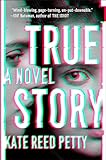 True Story by Kate Reed Petty: Petty’s debut novel is unlike anything I’ve read before in the best possible way. The novel follows Alice, a 30-something ghostwriter, as she comes to terms with the moment that upended her life in high school: the story of the drunken girl in the backseat of a car. Blurring genres and subverting structure, Petty examines the ways narratives are woven and take root while trying to untangle the truth. “True Story is a spectacular first novel—innovative, convincing, daring, suspenseful, heart-wrenching, and altogether astonishing,” writes Tim O’Brien. “What a beautifully unified, richly imagined, and skillfully composed work of literary art.” (Carolyn)
True Story by Kate Reed Petty: Petty’s debut novel is unlike anything I’ve read before in the best possible way. The novel follows Alice, a 30-something ghostwriter, as she comes to terms with the moment that upended her life in high school: the story of the drunken girl in the backseat of a car. Blurring genres and subverting structure, Petty examines the ways narratives are woven and take root while trying to untangle the truth. “True Story is a spectacular first novel—innovative, convincing, daring, suspenseful, heart-wrenching, and altogether astonishing,” writes Tim O’Brien. “What a beautifully unified, richly imagined, and skillfully composed work of literary art.” (Carolyn)
 My Life as a Villainess by Laura Lippman: Witty and wise, the debut essay collection by Edgar Award-winning author Lippman explores her decades-long writing career (which began at the Baltimore Sun); her marriage to acclaimed TV writer and producer David Simon; motherhood after 50; aging, and self-acceptance. Kirkus calls it “a wryly observed collection from a reliably good writer.” (Carolyn)
My Life as a Villainess by Laura Lippman: Witty and wise, the debut essay collection by Edgar Award-winning author Lippman explores her decades-long writing career (which began at the Baltimore Sun); her marriage to acclaimed TV writer and producer David Simon; motherhood after 50; aging, and self-acceptance. Kirkus calls it “a wryly observed collection from a reliably good writer.” (Carolyn)
 Ache by Eliza Henry Jones: In Henry-Jones’s second adult novel, Annie’s life is forever changed when a bushfire destroys her mother’s home, kills her grandmother, and leaves her family emotionally devastated. A year later, she returns to the house to help her uncle but also to heal the wounds left in the fire’s wake. “Eliza Henry-Jones’s gift for close observation and emotional nuance is undeniable,” writes The Saturday Paper. (Carolyn)
Ache by Eliza Henry Jones: In Henry-Jones’s second adult novel, Annie’s life is forever changed when a bushfire destroys her mother’s home, kills her grandmother, and leaves her family emotionally devastated. A year later, she returns to the house to help her uncle but also to heal the wounds left in the fire’s wake. “Eliza Henry-Jones’s gift for close observation and emotional nuance is undeniable,” writes The Saturday Paper. (Carolyn)
Intimations by Zadie Smith: In a slim collection of six personal essays, Smith reflects on the early part of 2020, offering her thoughts and feelings about the pandemic, inequality, racism, and injustice, among other topics. A Kirkus review states that “Smith intimately captures the profundity of our current historical moment,” and that her “quietly powerful, deftly crafted essays bear witness to the contagion of suffering.” (Zoë)
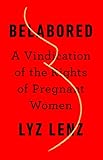 Belabored: A Vindication of the Rights of Pregnant Women by Lyz Lenz: This is an irreverent, researched excoriation of American maternal mortality rates and the racism and misogyny that shape the experience of people who give birth in America. The books draws upon journalist Lenz’s reporting and her own experiences as a mother from a patriarchal evangelical background. (Lydia)
Belabored: A Vindication of the Rights of Pregnant Women by Lyz Lenz: This is an irreverent, researched excoriation of American maternal mortality rates and the racism and misogyny that shape the experience of people who give birth in America. The books draws upon journalist Lenz’s reporting and her own experiences as a mother from a patriarchal evangelical background. (Lydia)
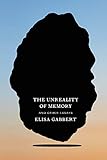 The Unreality of Memory by Elisa Gabbert: A collection of essays on memory and disaster from the poet and essayist. Publishers Weekly writes “Gabbert’s essays manage to be by turns poetic, philosophical, and exhaustively researched. This is a superb collection.” (Lydia)
The Unreality of Memory by Elisa Gabbert: A collection of essays on memory and disaster from the poet and essayist. Publishers Weekly writes “Gabbert’s essays manage to be by turns poetic, philosophical, and exhaustively researched. This is a superb collection.” (Lydia)
 A Room Called Earth by Madeleine Ryan: Twenty-four sparkling hours in the life of a neurodiverse woman on a night out to a party. Shelf Awareness writes, “The narrator’s voice is astute, clear and strong as the vodka she likes, as luminous as sparkling stars. Madeleine Ryan has created a marvelous woman and a joyous story.” (Lydia)
A Room Called Earth by Madeleine Ryan: Twenty-four sparkling hours in the life of a neurodiverse woman on a night out to a party. Shelf Awareness writes, “The narrator’s voice is astute, clear and strong as the vodka she likes, as luminous as sparkling stars. Madeleine Ryan has created a marvelous woman and a joyous story.” (Lydia)
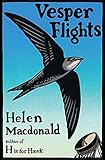 Vesper Flights by Helen Macdonald: In the follow-up to the bestselling H Is for Hawk, Macdonald brings together a collection of essays on birding and the natural world. In a starred review, Kirkus calls it ““[An] altogether memorable collection…Exemplary writing about the intersection of the animal and human worlds.” (Lydia)
Vesper Flights by Helen Macdonald: In the follow-up to the bestselling H Is for Hawk, Macdonald brings together a collection of essays on birding and the natural world. In a starred review, Kirkus calls it ““[An] altogether memorable collection…Exemplary writing about the intersection of the animal and human worlds.” (Lydia)
